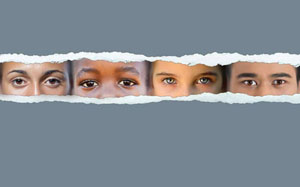
[HOME ] [ABOUT] [PHOTOS] [VIDEO] [BLOG] [HOUSTON] [TEXAS] [U.S. NEWS] [WORLD NEWS] [SPORTS] [POP CULTURE] [CONTACT]
State Department releases Trafficking in Persons Report

by Joseph Earnest July 27, 2015
Newscast Media WASHINGTON—The US State Department has just released the Trafficking in Persons Report 2015 that was prepared using information from U.S. embassies, government officials, nongovernmental and international organizations, published reports, news articles, academic studies, and research trips to every region of the world submitted to it through its tips program.
"This year's Report places a special emphasis on human trafficking in the global marketplace. It highlights the hidden risks that workers may encounter when seeking employment and the steps that governments and businesses can take to prevent trafficking, including a demand for transparency in global supply chains.
"The bottom line is that this is no time for complacency. Right now, across the globe, victims of human trafficking are daring to imagine the possibility of escape, the chance for a life without fear, and the opportunity to earn a living wage," Secretary of State John Kerry said.
Trafficking in persons, human trafficking, and modern slavery have been used as umbrella terms for the act of recruiting, harboring, transporting, providing, or obtaining a person for compelled labor or commercial sex acts through the use of force, fraud, or coercion.
Sex trafficking is when an adult engages in a commercial sex act, such as prostitution, as the result of force, threats of force, fraud, coercion or any combination of such means, that person is a victim of trafficking. Under such circumstances, perpetrators involved in recruiting, harboring, enticing, transporting, providing, obtaining, or maintaining a person for that purpose are guilty of the sex trafficking of an adult.
Child sex trafficking is when a child (under 18 years of age) is recruited, enticed, harbored, transported, provided, obtained, or maintained to perform a commercial sex act, proving force, fraud, or coercion is not necessary for the offense to be characterized as human trafficking.
Forced labor, sometimes also referred to as labor trafficking, encompasses the range of activities—recruiting, harboring, transporting, providing, or obtaining—involved when a person uses force or physical threats, psychological coercion, abuse of the legal process, deception, or other coercive means to compel someone to work. Once a person’s labor is exploited by such means, the person’s prior consent to work for an employer is legally irrelevant: the employer is a trafficker and the employee a trafficking victim. Migrants are particularly vulnerable to this form of human trafficking, but individuals also may be forced into labor in their own countries.
Bonded labor or debt bondage which is a form of coercion, is the use of a bond or debt. Some workers inherit debt; for example, in South Asia it is estimated that there are millions of trafficking victims working to pay off their ancestors’ debts. Others fall victim to traffickers or recruiters who unlawfully exploit an initial debt assumed, wittingly or unwittingly, as a term of employment. Debts taken on by migrant laborers in their countries of origin, often with the involvement of labor agencies and employers in the destination country, can also contribute to a situation of debt bondage. Such circumstances may occur in the context of employment-based temporary work programs in which a worker’s legal status in the destination country is tied to the employer and workers fear seeking redress.
Involuntary domestic servitude is a form of human trafficking found in distinct circumstances—work in a private residence—that creates unique vulnerabilities for victims. It is a crime in which a domestic worker is not free to leave her employment and is abused and underpaid, if paid at all.
Unlawful recruitment and use of child soldiers —Child soldiering is a manifestation of human trafficking when it involves the unlawful recruitment or use of children—through force, fraud, or coercion—by armed forces as combatants or for other forms of labor. Some child soldiers are also sexually exploited by armed groups. Perpetrators may be government armed forces, paramilitary organizations, or rebel groups.
Many children are forcibly abducted to be used as combatants. Others are made to work as porters, cooks, guards, servants, messengers, or spies. Young girls can be forced to marry or have sex with commanders and male combatants. Both male and female child soldiers are often sexually abused and are at high risk of contracting sexually transmitted diseases.
Although human trafficking is found in many trades, the risk is more pronounced in industries that rely upon low-skilled or unskilled labor. This includes jobs that are dirty, dangerous, and difficult—those that are typically low-paying and undervaluedby society and are often filled by socially marginalized groups including migrants, people with disabilities, or minorities. The entire report can be read or downloaded here.
Add Comments>>
|
|
Join the Newscast Media social networks
for current events and multimedia content.
Copyright© Newscast Media. All Rights Reserved. Terms and Privacy Policy
